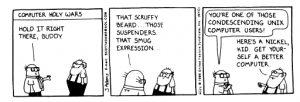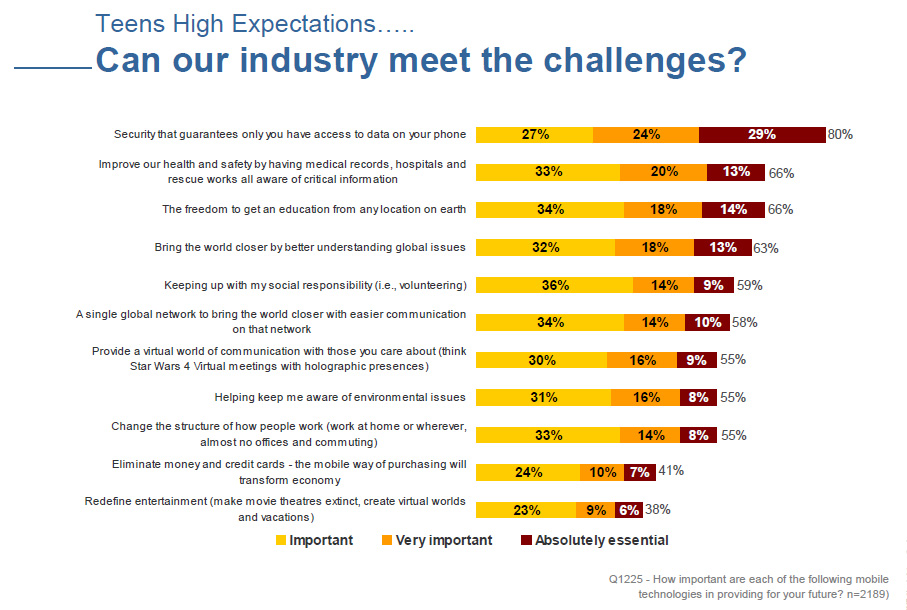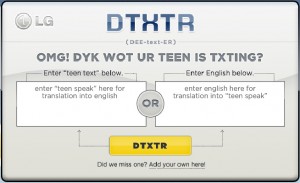James Lipton says “Don’t tweet your junk”
I, and I’m sure others, often refer to sanctimonious information technology people who say outlandish things at conferences or in news articles as “talking beards”. This is based on having the Dilbert cartoon below hanging in my cubicle for years. James Lipton’s role in new public service announcements (PSA’s) on texting (text messaging) for teenagers gives the concept a whole new meaning. The campaign “Before you text, give it a ponder”, which features videos with Lipton of Inside the Actors Studio loaning his trademark beard to teenagers so that its magical properties of forethought can be temporarily bestowed on them, effectively uses humor to combat the problems of sexting and cyber-bullying.
The fundamental idea of the campaign is that there is a demographic within teenagers and pre-teens that are “bystanders” in the negative behavior exhibited using mobile phones. This more passive (as it relates to negative mobile phone behaviors) group enables bad behavior through reactionary propagation of messages, but potentially would not if they briefly considered the downstream effect of their actions. LG Mobile Phones seeks to reach them with a social responsibility campaign relying on humor.
A Broader Campaign
The campaign is another early part of a multi-year continued effort sponsored by LG Electronics MobileComm U.S.A., Inc. (LG Mobile Phones) and created by Young & Rubicam, Inc. (a marketing and communications company) to combat mobile phone misuse and risky behavior. After conducting focus group style interviews with teenagers, LG determined that an awareness initiative based on a heavy handed approach would be largely ineffective, and decided a campaign based on humorous takes of real life situations would resonate better with this audience.
Further they identified that opposed to the conventional wisdom that this behavior is in essence bullies seeking out weaker victims in the digital age, that the group actually most likely to engage in negative behavior is a demographic identified as “tabloid teens”. These are teenagers who are part of a social circle that trade in gossip as a form of social currency and are as a result both the highest level perpetrators and victims of negative mobile phone behavior. LG has instead focused the campaign on a demographic of teens who are bystanders, persons who are enabling the negative behaviors but only in a passive or reactionary way (those who spread messages but do not create or target them).
Quick Statistics
- Today, approximately 79% of all teens (17 million) have a mobile device – a 36% increase since 2005.
- Teens are a huge consumer market segment and spend more than $100 billion annually.
- 57% of teens view a cell phone as key to their social life. 80% say their cell phone provides a sense of security.
- The average teen sends and receives 1,700 text messages a month. Across the country they’re sending 20,000 texts every second.
The Downside:
- 1 in 5 teens has received a naked picture on their mobile devices, referred to as sexting.
- 50% of youths said they’ve been the victim of some form of digital abuse.
- 22% of respondents indicated they’d been the target of lies spread through digital media.
- 8% of respondents indicated they’d been threatened with some form of digital blackmail.
What do we want?
The features teens most want according to the same CTIA survey? They want security that guarantees only they have access to their data on the phone. Good teenagers…
Campaign Elements
LG has covered all their social media bases with this campaign:
This part of the campaign follows the release earlier in the year of the DTXTR (DEE-text-ER) which translates the shorthand normally used in texting and instant messaging into English that the uninitiated (parents of teenagers ostensibly) can understand. As an example, the tool should allow MOS (Mom over shoulder) to better understand what she’s reading.
Finally
Commend LG Electronics not only for launching a campaign designed to address some of the risky behavior teenagers and tweens are engaging in, but for doing it in a thoughtful, creative, and somewhat risky way. This approach, employing multiple delivery mediums and using humor, is generally known to increase the effectiveness of awareness campaigns. The same concepts can be applied to security awareness campaigns within your own firm.
The campaign will likely get some flak for using terms like “junk”, appearing at first glance flippant about the issues of sexting and cyber-bullying, and for being somewhat uncompromising in their approach (no sugarcoating). For that LG is exercising some level of corporate courage, for being more concerned about the effectiveness of the campaign than potential criticisms thereof, and we hope they continue to stay with it.




